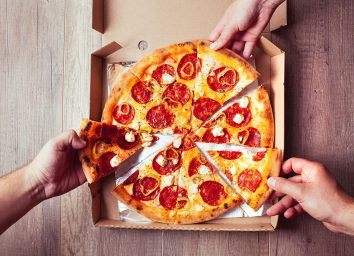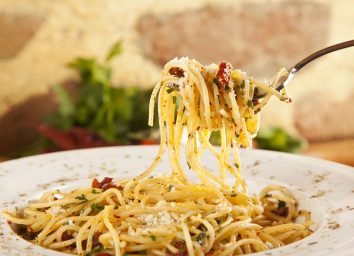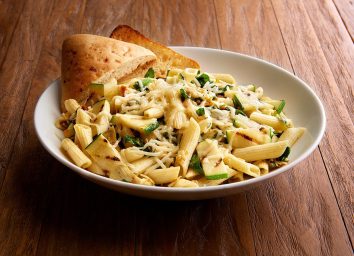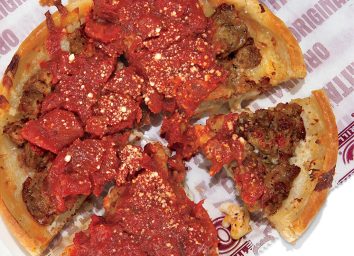Is Pasta Really Unhealthy for You? Here's the Surprising Truth
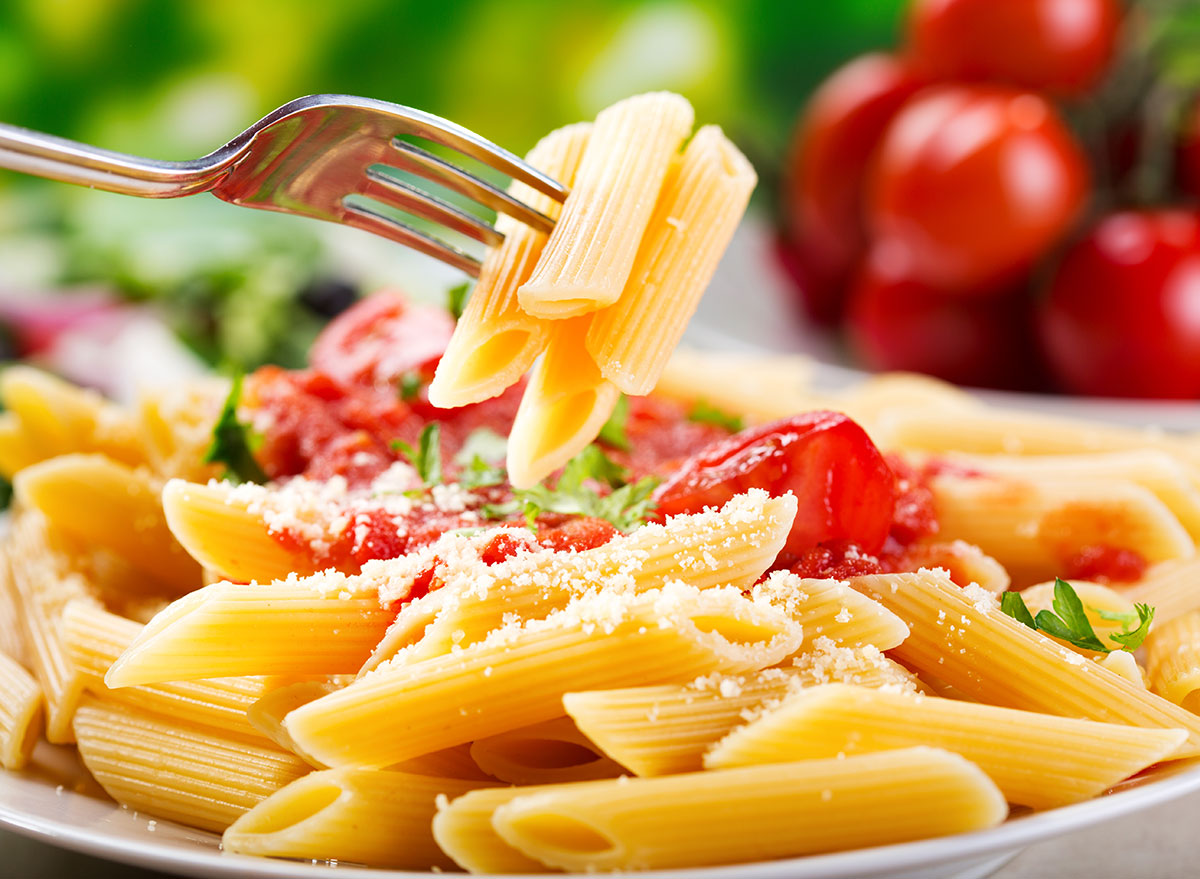
Pasta is one of the first foods people cut out when they're trying to drive down carb consumption. But unlike other items that are often considered "off-limits" for those following a diet or looking to lose weight (think sweets and alcohol), pasta actually does possess some redeeming nutritional qualities. There's even research to suggest that pasta may be beneficial for weight loss. Yep, you read that right.
To find out what place pasta can hold in a healthy diet, we called in Carolyn Brown, RD, a nutritionist at the private practice Food Trainers in New York City, to get to the bottom line of is pasta bad for you, once and for all.
Why do some people think they need to avoid eating pasta?
First things first: pasta is packed with carbohydrates. Just one cup of cooked spaghetti delivers 42 grams of carbs, about a sixth of one's recommended daily carb intake on a 2,000-calorie diet. That may not sound like much, but it bears noting that almost no one ever eats just one cup of pasta at a time. "Pasta is a food many people tend to overeat," says Brown. Order spaghetti Bolognese at a restaurant, and you're likely to eat at least two to three servings of pasta in one sitting.
So, why does that matter?
"The simple carbs [found in white pasta] quickly translate to sugar in our bodies, and can increase blood sugar levels quickly," explains Brown. "Blood sugar is closely related to cortisol and hormone levels."
What's more, is that calories add up fast when we eat pasta. Just one cup of cooked pasta contains about 200 calories. Multiply that by two or three, depending on the portion size served, then add a creamy sauce and cheese on top, and, well, you get the idea.
OK, where's the good news—is pasta ever healthy to eat?
Before you trash your tortellini, rest assured: pasta isn't the enemy. Just pay attention to the type you choose to consume.
"White pasta is refined during processing," explains Brown. "With the bran and germ stripped away, most of the nutrients contained within the wheat kernel are removed. This makes white pasta higher in calories and lower in fiber."
That said, most refined pastas are fortified with vitamins and minerals like niacin, iron, thiamin, riboflavin, and folic acid, so they aren't entirely devoid of nutrients. Whole wheat pasta is made from the entire wheat kernel and naturally contain those nutrients (and therefore doesn't need to be fortified), as well as protein and fiber. The higher fiber content of whole-wheat pastas can help keep you full for longer and also mitigate rises in blood sugar levels post-meal.
More good news: Research suggests pasta may not deserve its notoriously bad rep. A 2018 systematic review published in The BMJ found that overweight or obese individuals who ate pasta while following a low-glycemic index (GI) diet experienced significant weight loss compared to those following a high-GI diet. According to the authors, the findings indicate that pasta consumption in the context of other healthy dietary patterns is a-OK, and may even be beneficial for those looking to lose weight.
Brown doesn't disagree.
"Don't be afraid of some carbs," she says. "I sometimes go 50/50 with zucchini noodles and a brown rice- or bean-based pasta, then add a little protein like chicken, shrimp, or even an egg." Add one to two tablespoons of a healthy fat—such as olive oil, grass-fed butter, or pesto—to complete the meal. "This will help big-time with fullness," adds Brown.
Bottom line: Can I eat regular pasta and still meet my health goals?
In moderation, yes. Brown recommends having white carbs just one to two times per week, and eating mostly complex or nutrient-dense carbs like quinoa, sweet potatoes, brown rice, beans, and lentils instead.
"If you are going to have pasta, do it like the Italians," she says. "Get great quality or homemade pasta, eat a small- to normal-sized portion that's one cup or about the size of your fist, and bulk it up with veggies and a little protein. Then, try not to sop up the sauce with bread." We know, we know—easier said than done. But hey, you can still eat pasta, just in a smarter way, and that's the good part, right?
